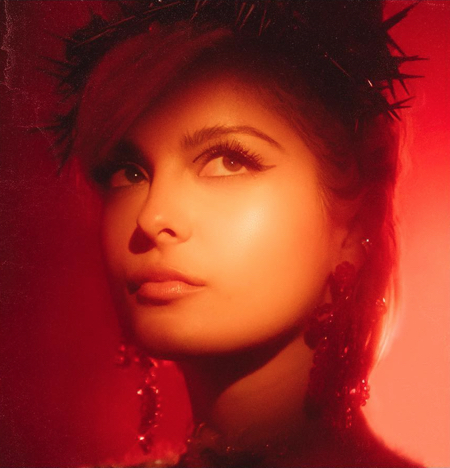T

There’s no longer a stigma about coming out as having bipolar disorder. It is becoming more commonplace to openly discuss mood disorders, as evidenced by the number of celebrities who’ve publicly disclosed their diagnoses.
Last spring, Mariah Careytold Peoplemagazine that she’d been struggling with bipolar, saying that she finally commanded control of her illness in a cover story of the magazine. No one batted an eye.
In the world of pop music alone, we now have three millennial bipolar individuals: Demi Lovato, Halsey, and Bebe Rexha, who announced her bipolar status yesterday via Twitter.

“For the longest time, I didn’t understand why I felt so sick,” Rexha tweeted. “Why I felt lows that made me not want to leave my house or be around people and why I felt highs that wouldn’t let me sleep, wouldn’t let me stop working or creating music. Now I know why.”
Bipolar disorder — formerly known as manic-depression — is a mood disorder in which people drift between two poles on a mood spectrum: mania, which is a feeling of extreme happiness and euphoria that can involve hallucinations and, in its most severe manifestation, psychosis; and extreme depression, in which the person feels intensely melancholy, debilitated, and disinterested in activities that used to make them happy.
One in five adult Americans, or 43.8 million people, experience mental illness in a given year, according to the National Alliance on Mental Illness. In the U.S., there are 5.7 million people with bipolar disorder, 60% of who have a problem with addiction.
Lovato is a veteran of mental health disclosure. Revealing her bipolar illness in 2011, she has also suffered from an eating disorder and self-harm.“This is a daily battle that I will face for the rest of my life,” she told MTV News.
And Halsey has noted that bipolar individuals seem to be more kindhearted than the general population:
“The thing about having bipolar disorder, for me, is that I’m really empathetic,” she told Elle magazine, revealing her illness for the very first time on its pages.
Forty-nine-year-old Oscar-winning Catherine Zeta Jonescame out as bipolar back in 2011, and it was much ado about nothing.
“I’m not the kind of person who likes to shout out my personal issues from the rooftops, but with my bipolar becoming public, I hope fellow sufferers will know it’s completely controllable,” she told InStyle in a cover story for the magazine in 2012.
Kanye West is another face in music who struggles with bipolar. He writes about it on his 2018 album Ye, the cover of which features the words “I Hate Being Bi Polar [sic]. It’s Awesome” scrawled across a bucolic mountain vista.
In October of 2018, Ye — donning a MAGA hat — made a visit to the Oval Office,where he spent 20 minutes with President Trump in what can only be described as a manic extravaganza.
The rapper made headlines recently when it was revealed that he is not in treatment, as wife Kim Kardashian told Voguethat Yeeschews meds: “For [Kanye], being on medication is not really an option, because it just changes who he is… Right now everything is really calm. But we can definitely feel episodes coming, and we know how to handle them.” Demi Lovato, Halsey, Rexha, and the others mentioned in this story are indeed taking their treatment seriously, unlike Kanye.
With so many examples of celebrities coming out as bipolar, we who have the illness feel emboldened, like we’re not alone. We find comfort in each other. As the saying goes, there is safety in numbers. And those numbers are growing each and every day. Every one of them is a stigma buster. And maybe one day bipolar will be seen as just another chronic disease, an illness that is incidental to the person, not defining them.
Watch Bebe Rexha’s video for “Last Hurrah” below:

